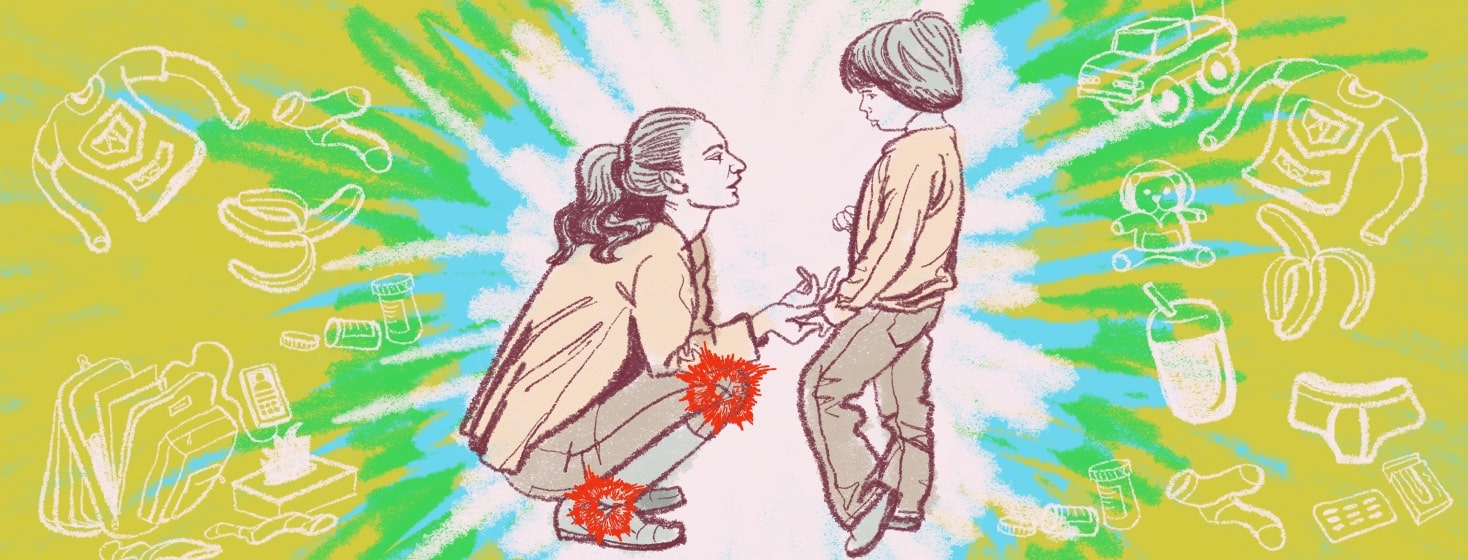Parenting an Active Child While Living With RA
My daughter is our miracle baby. She was conceived via in vitro fertilization (IVF) after several years of failed attempts and even technological interventions. She is also the only baby I've been able to carry to term. Since her birth, I've lost babies at 6 weeks gestation, 8 weeks gestation, and 12 weeks gestation — none of whom I got to hold in my arms, just in my heart.
At 5 years old, my daughter is incredibly active
When my daughter was a baby, and even a toddler, I found her relatively easy to manage. We'd lay on the couch or sit on the floor for hours at a time doing small activities, moving slowly as she developed her relationship with the outside world; I watched in awe as she went from a tiny bundle to a little girl.
Today, she is 5 years old. She's smart and funny and has an incredible memory. She loves laughing and playing games and going to Target (just like her mama). She's also INCREDIBLY active.
Most parents would nod their heads, wondering where the lie or the problem is in the sentence above — these are all good things. However, most parents don't also live with rheumatoid arthritis (RA).
The hardest part is the constant movement
One of the hardest, most challenging parts of spending full days with my daughter is the up-and-down and up-and-down — we sit down in one room, but that activity only lasts a short while before we move to the next activity, which is, of course, up the stairs and around the corner, and that one runs its duration over a short period of time, too.
We then go down 2 flights of stairs to the basement and find a spot on the floor to sit and play. Then, she asks for water and a snack, meaning that I need to get off the floor again, climb the stairs again, fetch the requested items, and again climb down the stairs and settle myself on the floor, just for her to tell me that actually she's done laying in the basement and would like to go play outside.
Managing my RA pain
For me, I experience the most severe symptoms of RA in my knees, my ankles, and my feet — and all of this moving and position-changing and stair-climbing and settling onto the floor and then getting back up again and repeating this pattern all day every day... It's taken a toll on my body. Every night after I tuck my daughter into bed, I climb into my own bed with some Tiger Balm (a topical muscle rub) and an ice pack, and try to reduce some of the stiffness, pain, and inflammation I've accumulated during that particular day.
Explaining my limitations to my daughter
Now, some days are better; some days don't hurt so bad, or I'm able to do more moving around the house with ease, but lately I've had to explain to my daughter in age-appropriate words that mommy's body isn't as strong as daddy's body (or insert adult friend she knows here), and that means that mama can't always move as fast or as often as many of the other people she plays with.
These conversations break my heart, and they make me feel like a bad mom at times, but I also know that ignoring the fact or telling my daughter anything other than a version of the truth is not an eligible choice for our open and honest family.
How have you managed parenting active kids?
My biggest hope is that this information and understanding helps my daughter to be empathetic, not just in our home but out in the world, at school and dance class and in gymnastics — realizing that every single person's body moves differently, and we don't always know why, and usually it's okay to ask them — but it's also okay if they don't want to answer or explain.
If you're a parent with RA and with an active kiddo, how have you managed parenting, your child's needs and expectations, and the physical pain and demands from your body? I'd love to hear your thoughts below.

Join the conversation